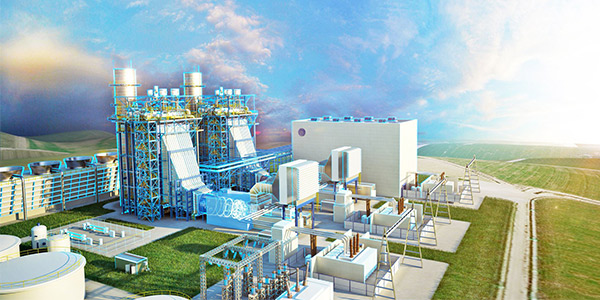By Amanda Durish Cook
DTE Energy’s latest integrated resource plan before the Michigan Public Service Commission is attracting several detractors who say it is short-sighted and relies blindly on fossil fuels.
DTE filed the IRP in spring to cover 2020 through 2035. Last month, several environmental and renewable energy proponents called for the PSC to reject the plan when it rules on it in late January (U-20471).
Reaction to the plan is a now familiar salvo in the industry: Environmentalists and renewable advocates maintain the utility is not making enough progressive change and is snubbing alternative energy sources on a grid that they say will soon be brimming with new technology.
Or, as Robert Rafson put it in testimony on behalf of the Great Lakes Renewable Energy Association, DTE relies on “traditional, backward-thinking, business-as-usual practices compared to ideal forward-thinking planning.”
Rafson said DTE’s plan includes a “minimum level of adoption of new technology.”
The company is currently constructing the $1 billion, 1,150-MW gas-fired Blue Water Energy Center to replace about 2,000 MW of retiring coal plants in southwestern Michigan. The utility will retire the 277-MW River Rouge plant next year, and the 1,260-MW St. Clair and 485-MW Trenton Channel plants by 2022.
The IRP also proposes multiple gas-fired plants rated at about 400 MW, 693 MW of wind generation, 11 MW of solar with on-site storage and 859 MW in demand response programs by 2024.
“It is disingenuous for DTE to pat themselves on the back for reducing their carbon emissions when most of that reduction is derived from inefficient coal generation to more efficient natural gas and energy efficiency which they don’t even pay for,” Rafson said.
Union of Concerned Scientists analyst James Gignac — representing UCS, Environmental Law & Policy Center, The Ecology Center and Vote Solar, among others — said the IRP is so “fundamentally flawed” that Michigan regulators should outright reject it and order an amended filing.
“Doing so will ensure that coal plants are not being operated longer than they should and that investments in clean energy options are being pursued sooner and at the lowest cost,” he testified. Gignac said DTE simply assumed that its Belle River and Monroe plants would operate until 2030 and 2040, respectively, without considering their operations and maintenance costs or possible hundreds of millions of dollars in environmental mitigation retrofits.
DTE has previously committed to end coal use by 2040 and has a 50% renewable energy goal by 2030.
“In several ways, the IRP modeling was effectively prevented from choosing other more cost-effective resources,” Gignac told the PSC. By “hardcoding” the coal plants into its plan, Gignac said DTE assumes that any added capacity provides zero value, even as the costs of wind and solar generation, battery storage and behind-the-meter resources rapidly decline.
“DTE forced its modeling to over-rely on existing, company-owned resources, which produced suboptimal results and portfolios with inflated present value of revenue requirement,” Gignac said.
DTE has told the PSC that its plan is the “most reasonable and prudent means” of meeting demand through 2035. The company said it’s now focused “on more clean energy and less coal,” and has also concluded it won’t have a “persistent capacity need” until 2030, when the mixed-fuel 1,395-MW Belle River Power Plant near the Canada border is expected to retire.
But consultant Robert Fagan — speaking on behalf of the Michigan Environmental Council, Natural Resources Defense Council and Sierra Club — said DTE is failing to account for ITC transmission upgrades in place by 2023 that will increase the Lower Peninsula’s capacity import limits and expand energy purchase options “from the broader MISO region.”
Fagan said MISO Zone 7 capacity import limits are set to increase anywhere from 1,000 to 2,000 MW above the current approximate 3,200-MW limit and called DTE’s decision to use the current limit in out-year planning “not credible.” The environmental groups urged DTE to pursue bilateral purchase alternatives and an earlier retirement of Belle River.





